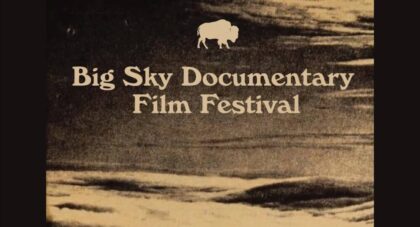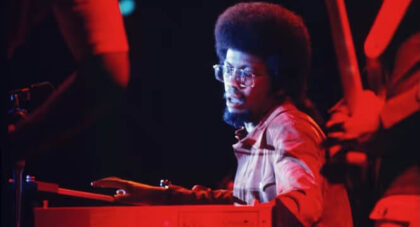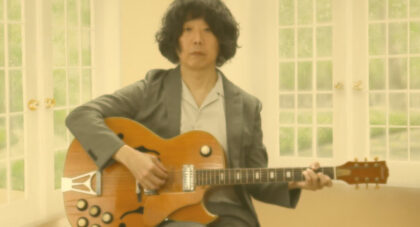"For me, it’s a bit like when they discover a frozen reptile or something and it starts running real quick once it’s reanimated," says Mark Stewart, firebrand, techno-philosopher and alternative agitator, says of his decision to reboot his legendary post-punk band The Pop Group in 2010.
Since then, the Bristol-based band has issued two albums, Citizen Zombie in 2015 and the recently released Honeymoon on Mars, records expanding on the polymorphic range of the band's classic late '70s, early '80s works Y and For How Much Longer Do We Tolerate Mass Murder? Blending dub, grime, rock, and free jazz, Honeymoon on Mars finds Stewart and co. fresh and taut. It's far from your average "let's get the band back together" vibe, but that's fitting for a group which transformed and mutated as a matter of principle, often within the same song.
Talking with Stewart is a lot like drinking water from a burst fire hydrant. He free associates and offers fascinating insights every other word. He hops between time frames and peppers his thoughts with self-deprecating cracks and wickedly funny jokes. His voice -- one informed by radical weirdness and boundless creativity -- feels like the kind of voice we need now, as much as ever. Following, our phone discussion with Stewart, which has been condensed and edited for clarity.
Aquarium Drunkard: This is your second release since reforming the Pop Group in 2015. What inspired this new burst of life for the band?
Mark Stewart: It’s really kind of weird. Everything’s changed. I wasn’t sleeping when the Pop Group finished. The last-ever Pop Group concert was this huge rally in Trafalgar Square in London. I was working for this thing called the Campaign for Nuclear Disarmament. That was the last ever Pop Group concert, but it was also my first-ever solo show.
For me, doing stuff is doing stuff, whoever I’m doing it with. When we reformed, it was out of the blue. All of us are against “heritage” things. As soon as me and Gareth [Sager] started talking about it, we thought no, no. We were properly punk in that we were independent. We controlled our catalog and fought to defend our intellectual property, right? So we started talking about reissues, because there was a huge demand for stuff which hadn’t been out for years and all these young bands were talking about [our records]. Then suddenly, I get this phone call from All Tomorrow’s Parties, and they have these underground celebrities curating the lineups. Matt Groening, the Simpsons guy, wanted me to reform the Pop Group and Iggy to reform the Stooges.
I just thought, “What a weird concept.” I had Homer Simpson going ‘round and ‘round in my head. And we’re looking more like Homer Simpson day by day now. [Laughs] It was a real shock to the system. I had been doing these weird collaborations with Kenneth Anger the filmmaker and political things and performance art, and I thought, “Can I approach working with these people as a new thing?” We were still all friends, but we wanted to ignore what came in the past. Every Pop Group song was different; even within the same song we can change styles, so we thought let’s just give it ago.
Only the good shit. Aquarium Drunkard is powered by its patrons. Keep the servers humming and help us continue doing it by pledging your support.
To continue reading, become a member or log in.


